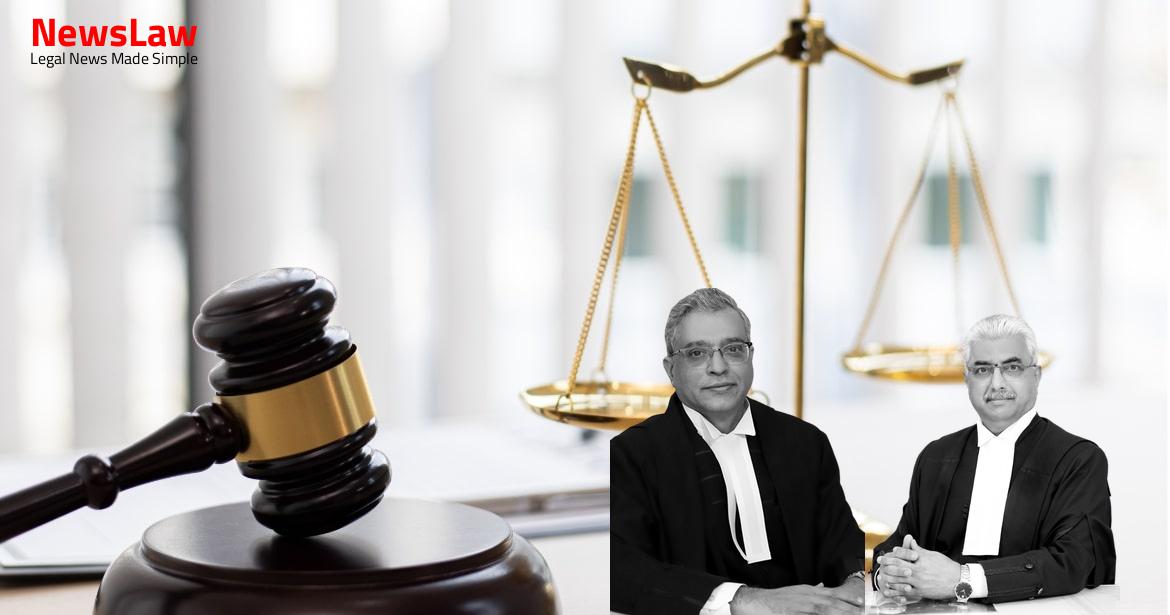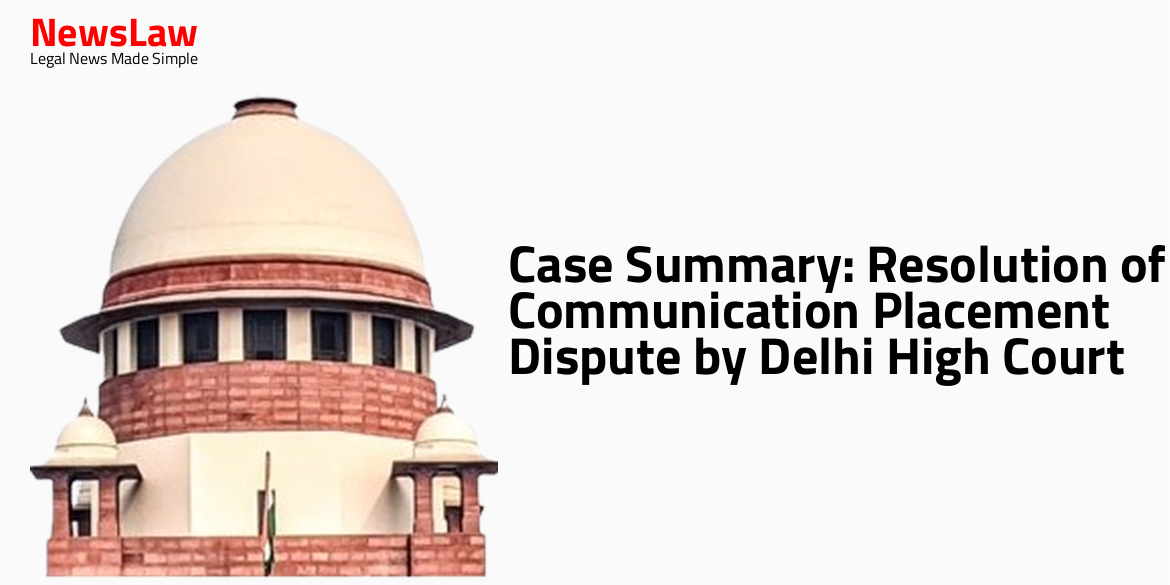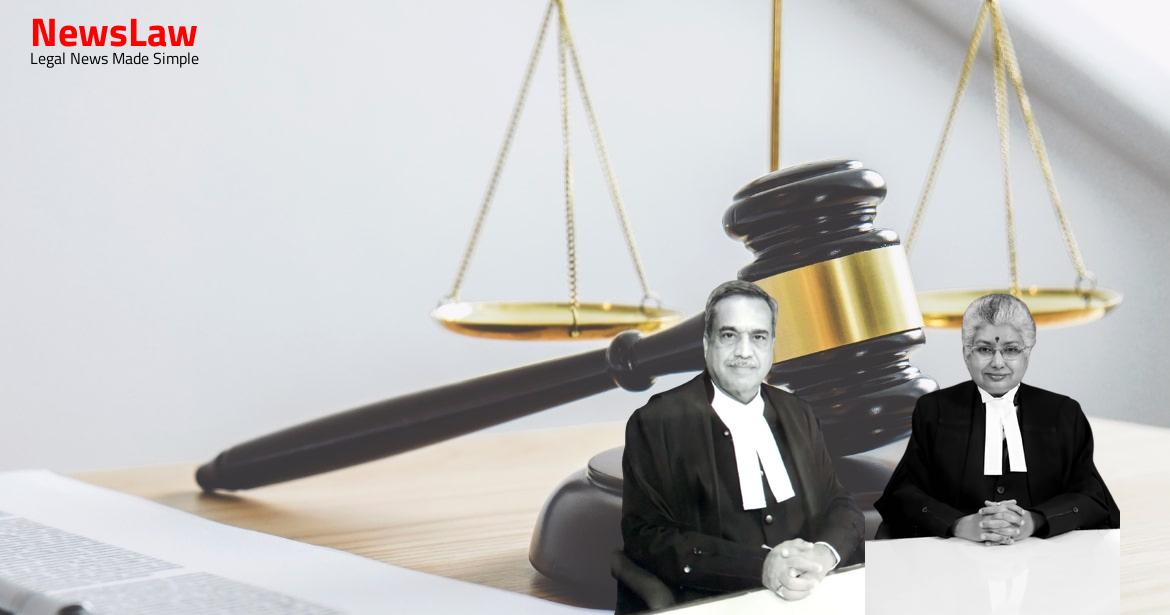In the case of Delhi Metro Rail Corporation v. Value Added Tax Officer, the Supreme Court of India upheld the High Court’s ruling on timely tax refunds with interest. The judgment serves as a significant milestone in ensuring fair treatment of taxpayers and upholding the principles of tax law in the country.
Facts
- The Value Added Tax Officer issued an adjustment order dated 18.11.2022 to adjust the claims for refund against dues under default notices from 30.03.2020 to 26.03.2022.
- The appellant, a joint venture working with Delhi Metro Rail Corporation, sought a refund of excess tax credit for specific quarters.
- The appellant filed a writ petition before the Delhi High Court to challenge the adjustment order and default notices.
- The High Court allowed the appellant to avail statutory appeal under Section 74 of the Act for default notices.
- The current appeal focuses on challenging the adjustment order.
- High Court quashed the adjustment order
- High Court directed refund of Rs. 17,10,15,285/- for the 4 quarter of 2015-16
- High Court directed refund of Rs. 5,44,39,148/- for the 1 quarter of 2017-18
- Refund to include interest as per Section 42 till the date of realization
Issue
- The issue in consideration is the mandatory timeline for refund under Section 38(3) of the Delhi Value Added Tax Act, 2004.
- The question revolves around whether this timeline must be adhered to while recovering dues under the Act by adjusting them against the refund amount.
Arguments
- The learned ASG argues that the timelines in Section 4 38(3) are meant to ensure payment of interest if the refund is delayed beyond the statutory period.
- The timeline mentioned in the law cannot be used to take away the power to adjust refund amounts against outstanding dues as per Section 38(2).
- The learned counsel for the assessee agrees with the High Court’s reasoning and cites judgments from the Delhi High Court that support this interpretation.
Also Read: State of Rajasthan vs. Life Insurance Corporation Of India(LIC) : Stamp Duty on Insurance Policies
Analysis
- Section 38(3)(a)(ii) mandates refund processing within two months of filing returns.
- Default notices were issued after the stipulated refund processing period.
- The purpose of the timeline under Section 38(3) is not just for interest calculation but to ensure timely refunds.
- The department has no legal right to retain the amount beyond the prescribed time limit.
- The adjustment of refund against amounts due under default notices issued post-refund period is unjustified.
- Refunds can only be adjusted when enforceable demands exist at the time of processing.
- The Act mandates adherence to timelines for refund processing to fulfill its object.
- The refund in this case pertains to quarter tax periods.
- The department must act within the time limit under Section 59 when seeking necessary information.
- The High Court’s consistent view on this matter was upheld.
- The High Court relied on the Delhi High Court’s judgment in Flipkart India Private Limited v. Value Added Tax Officer, Ward 300 for guidance on the law regarding refunds under Section 38.
- The Court emphasized the importance of the department strictly adhering to the time limit set for processing and issuing refunds under Section 38.
- Section 38 of the Act provides for refunds of excess tax, penalty, and interest paid by a person.
- The Commissioner is required to apply any excess amount towards the recovery of other amounts due under the Act or the Central Sales Tax Act, 1956.
- Specific timelines are provided for granting refunds, depending on the tax period of the person claiming the refund.
- In certain situations, refunds may be carried forward as tax credits to the next tax period.
- Security may be demanded by the Commissioner as a condition for refund payment.
- Exclusions are provided for calculating the refund timeline under certain circumstances.
- Different rules apply to refunds in cases of sales to registered and unregistered dealers.
- No refund is allowed to a dealer who has not filed any return due under the Act.
- A provision should not be interpreted in a way that goes against its intended purpose
- Interpreting the provision to allow the department to retain refundable amounts for extended periods for future adjustments would be detrimental
- Such an interpretation would enable the department to withhold funds inappropriately
Decision
- The present appeal is dismissed.
- The impugned judgment directing the refund of amounts along with interest as provided under Section 42 of the Act is affirmed.
- Pending applications, if any, are disposed of.
Case Title: COMMISSIONER OF TRADE AND TAXES Vs. FEMC PRATIBHA JOINT VENTURE (2024 INSC 364)
Case Number: C.A. No.-003940-003940 – 2024



